Propaganda and the Banality of "Zone of Interest"
Reflections on two films, one by Nazis and the other about Nazis
For the last couple of weeks, my family has been in the grips of Olympic Fever.
As many regular readers know, my Kiwi wife loves all kinds of sports. Cricket or baseball, rugby or football, doesn’t matter, she enjoys it. But living in America, the Olympic Games give her the rare opportunity to cheer on her two favorite teams: New Zealand, and whoever is playing Australia.
Being a film nerd instead of a sports buff, I contracted a variant of Olympic Fever. The Criterion Channel has a collection of documentaries, many of which were officially commissioned by the IOC, called 100 Years of Olympic Films: 1912–2012.1 It’s a fascinating look at how sports films evolved from the silent era to modern digital filmmaking.
That being said, I did kind of assume Criterion would skip over the 1936 Olympics. You know, the ones hosted in Berlin. By the Nazis. Olympia, directed by Nazi propagandist Leni Riefenstahl,2 is famous for its innovative filming techniques, but surely Criterion wouldn’t host Nazi propaganda…
Nope! It’s right there. I only knew the films3 by reputation, so I watched out of curiosity. I recognized Jesse Owens, but other than his events, the movie held me in suspense. Just one example: the pole vault competition ran into the night, over five hours, and Olympia’s portrayal of the competition was totally engrossing.4 Hard to believe, but I got swept up in the excitement of sporting events that had been decided 88 years ago.
Then, every once in a while, the film cuts to a swastika flag or a smiling Adolf Hitler:
It's uncomfortable, seeing him like this. We’re used to him angrily shouting from a distant podium, or towering above everyone, shot from a low angle. But even in this most flattering depiction, as an affable, cheerful statesman, you can't forget who he really is or what he did.
Good Film in the Service of Evil
Olympia truly was amazingly shot and edited. Riefenstahl had the largest camera crew ever assembled at the time, and was given complete access to every event. They captured astounding athletic feats, often in close-up and slow motion.
No one had ever filmed sports like this before. I’ve certainly never seen Hitler this way, either. It’s one of the most emotionally jarring cuts I’ve ever seen.
Yet, I tried to cast my mind back to that time. Although Germany had already begun the re-militarization of the Rhineland, few people predicted the extent of the horrors that the Nazi would bring about over the next decade. To most viewers at the time, Hitler was simply the head of state of the host nation—naturally he cheered on his countrymen.
Complex Emotions
The beauty of the Olympics is bringing together people from all over the world in the spirit of competition. Athletes in their prime from Germany, Italy, and Japan, Britain, France, the US. Many of them were enlisted in their home militaries, on leave so they could represent their country in a friendly international contest…
In just a few years, these young men would be shooting at each other, killing each other.
Olympia elicits many complex and even contradictory emotions in the modern viewer. Admiration for these handsome men and beautiful women, and their graceful and powerful performances; dread for the most horrific war they’re about to face. Respect for the filmmaking techniques; disgust for the ideology they’re aimed at promoting. Excitement, fear, joy, sorrow.
All of which is a preamble to the film I promised to talk about in the headline of this article—
The Zone of Interest is, like Olympia, a visually arresting film about Nazis. Made in the modern era, however, its far less complicated.
Sound and Vision
Director Jonathan Glazer is a visual stylist. His 2014 film Under the Skin is one of those rare movies that holds interest not with story or character, but with visuals alone.
His films always had interesting sound design, but Zone of Interest takes it up to another level. If you haven’t seen it,5 the film takes place almost entirely in and around the home of Rudolf Höss, the commandant of the Auschwitz concentration camp. We never actually see the interior of the camp, but we sure as heck hear it—
It’s a powerful example of acousmêtre, a concept I explained in my Halloween video essay last year. In some ways, hearing the Holocaust makes it worse for each individual viewer, as it allows us to imagine the worst possible version of events in our own mind’s eye.
Sound mixers Tarn Willers and Johnnie Burn rightfully won Best Sound at the Oscars earlier this year. And just because I like John Mulaney, here’s his crazy riff before they accept the award—
Humanizing Nazis
In interviews, Christian Friedel, the actor who played Höss, and Glazer say they wanted to humanize the monster. The writer/director did an immense amount of research:
Höss went from being this name among many in history books to a human being who was a father, a husband, and a true believer in what he was doing. I just kept asking myself: How? Honestly, the last thing I wanted to do was spend a lot of time reading about him and thinking about him. Which is exactly what I then spent the next few years doing.
Friedel wasn’t interested in a clichéd portrayals, but Glazer’s vision convinced him:
As soon as I met Jonathan, I was convinced of his vision, of his approach, to show [Höss] as a boring bureaucrat in everyday situations, to give this monstrous person a human face.
The challenge is always the same: How do I transform myself to play the human behind the character and not the cliché?
But did they actually accomplish that? Did they humanize a war criminal? To me, the answer is both yes and no.
You Should Smile More
The film does portray the Höss family (including his wife and children) as human beings with feet of clay. As Glazer puts it, they’re “non-thinking, bourgeois, aspirational-careerist horrors,” which gives the game away, I think.
They’re not demons, but as characters, they’re uniformly and one-dimensionally awful. Rudolf is an overbearing boss, cold to his family, distant; he cheats on his wife, Hedwig. She’s a shrew, rude to the help, almost as uninterested in their children as he is. And those kids are annoying, to boot.
Even if these people weren't Nazis participating in the Holocaust, they'd still be the worst family in your HoA.
I don’t think Friedel smiles even once during his portrayal of Höss. He looks like this for the majority of the film—
Compare that with the real Rudolf Höss (picture right)—
As with Hitler at the Olympics, it’s unnerving to see Höss just hanging out with his buddies and smiling. This, I think, it’s more interesting, more disturbing, than the one-note depiction we see in Zone of Interest.
Imagine if the character had been pleasant, charming, and funny. If his wife was warm and nurturing, if the kids were precocious. Imagine if they were likeable. Then we’d have to recognize that they could be us.
It Can Happen Here
It's natural to sympathize with the victims of the Holocaust, to worry that something like that could happen to you or your family. We should have that kind of sympathy.
It's quite another thing to look at the perpetrators and think, “In the right wrong circumstances, that could be me.”
As Solzhenitsyn wisely said, the line between good and evil cuts through every human heart, yours, mine, and Rudolf Höss’s, too.
Glazer never dares approach that line. Sure, Rudolf Höss is human, but he's still an asshole.
“The commandant of Auschwitz is a bad guy” isn’t much of a statement. We’re all on board with the fact that Nazis are evil.6 This isn’t news.
How much more challenging would it be to make the audience like the character, and his family. To empathize with mundane, daily struggles of homelife and childrearing, balancing work and family? To make evil appealing, but not in that fake, movie serial killer way.7
An Olympic-Sized Challenge
Millions of people were killed in the Holocaust, which is horrific. But the perpetrators weren’t “horrors,” as Glazer put it. Instead, as the title of Christopher Browning’s enlightening and shocking book puts it, most of them were ordinary men.
Both Olympia and The Zone of Interest portray Nazis. Riefenstahl tried to make them appear superhuman and extraordinary; with our historical perspective, we know that they’re not, certainly morally. Glazer wants them to appear “human,” but not ordinary. Counterintuitively, this means the old propaganda film has more complexity (at least for modern viewers). Zone simply reaffirms our belief that Nazis=bad. It’s simple, banal, and let’s us off the hook.
Still, what filmmaker would dare portray the Nazis any other way? Well, honestly, quite a few have tried. But this article is already way too long, so that discussion will have to wait for another day.
Self-Reflection & Cinema Nazis
Hitler has become a kind of secular devil. Nazi imagery has been used for 80 years a generic representation “evil,” as pointed out above. But while Hitler certainly had his critics, he wasn’t a universal symbol for evil in the 1930s. He was just one of many bad dictators who existed then and still exist now.
What do you think? Have you seen Olympia and Zone of Interest? How do you think they compare?
I assume they made the list during the London Olympics and haven’t updated it since.
It was divided into two parts; otherwise it would’ve been four hours long.
You should; it’s a powerful film.
Yes, I know neo-Nazis and their ilk exist, but they’re not gonna watch this movie. And even if they did, it’s not gonna change their minds.
I actually enjoyed Trap for what it was.




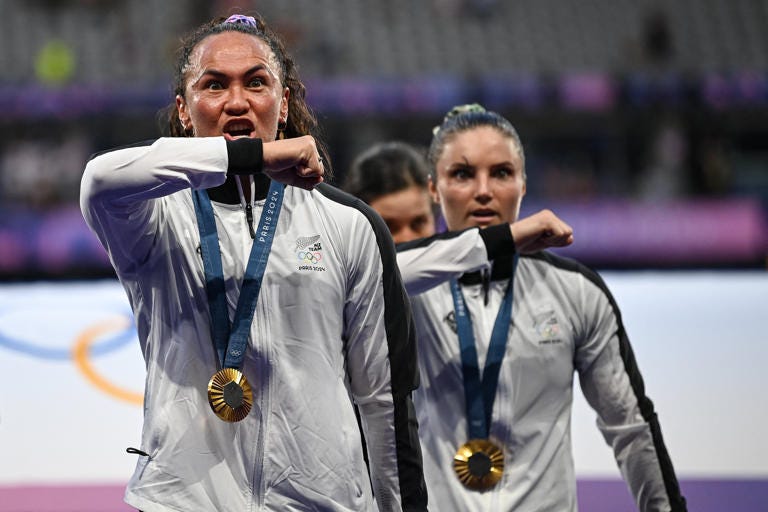

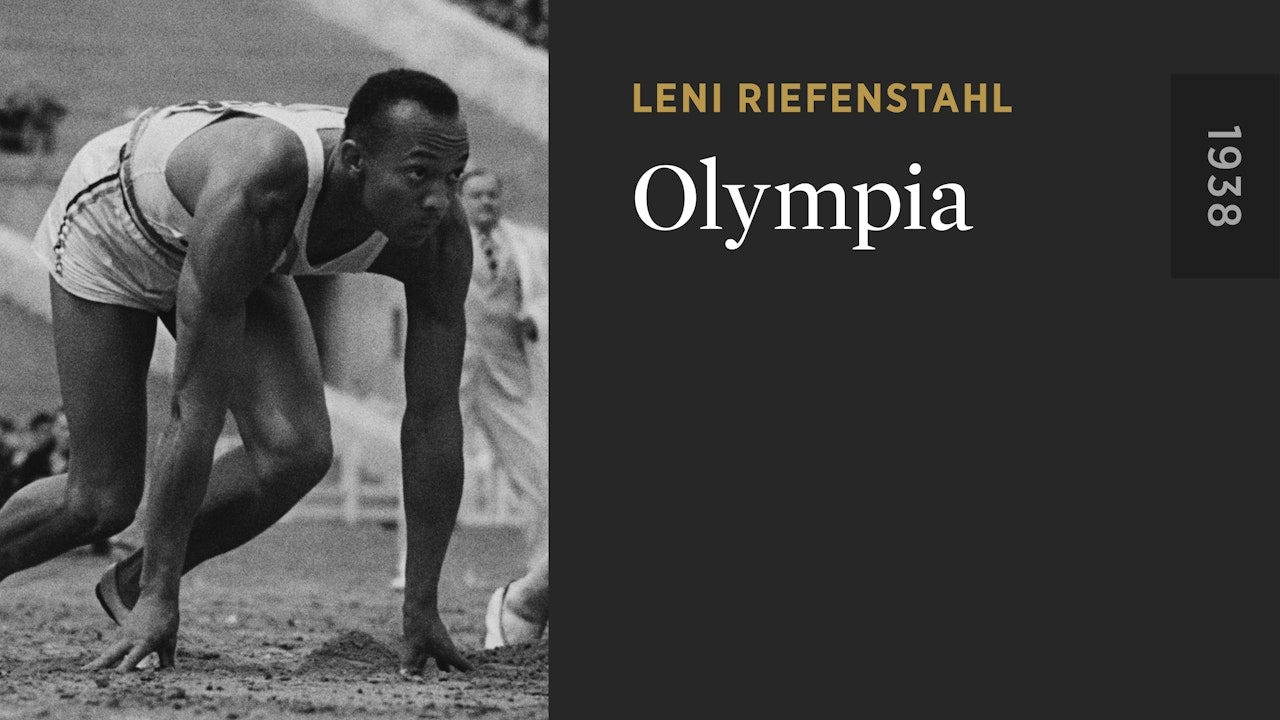
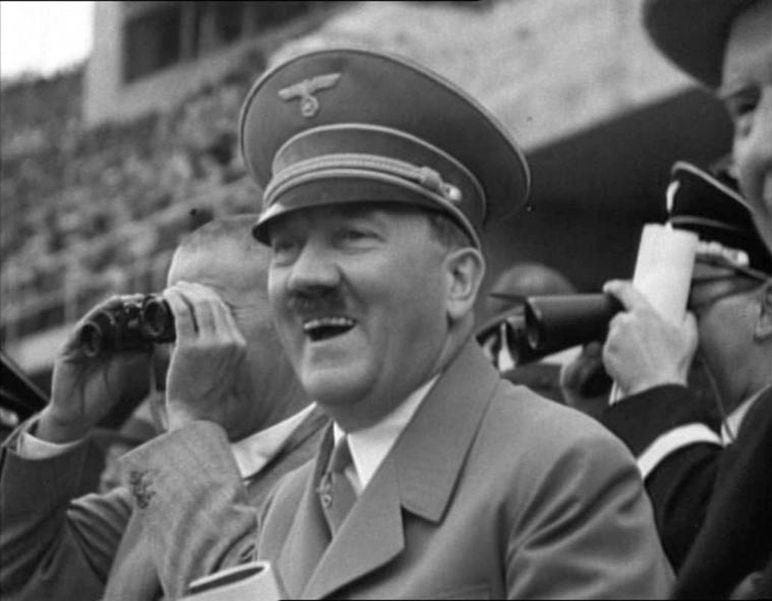
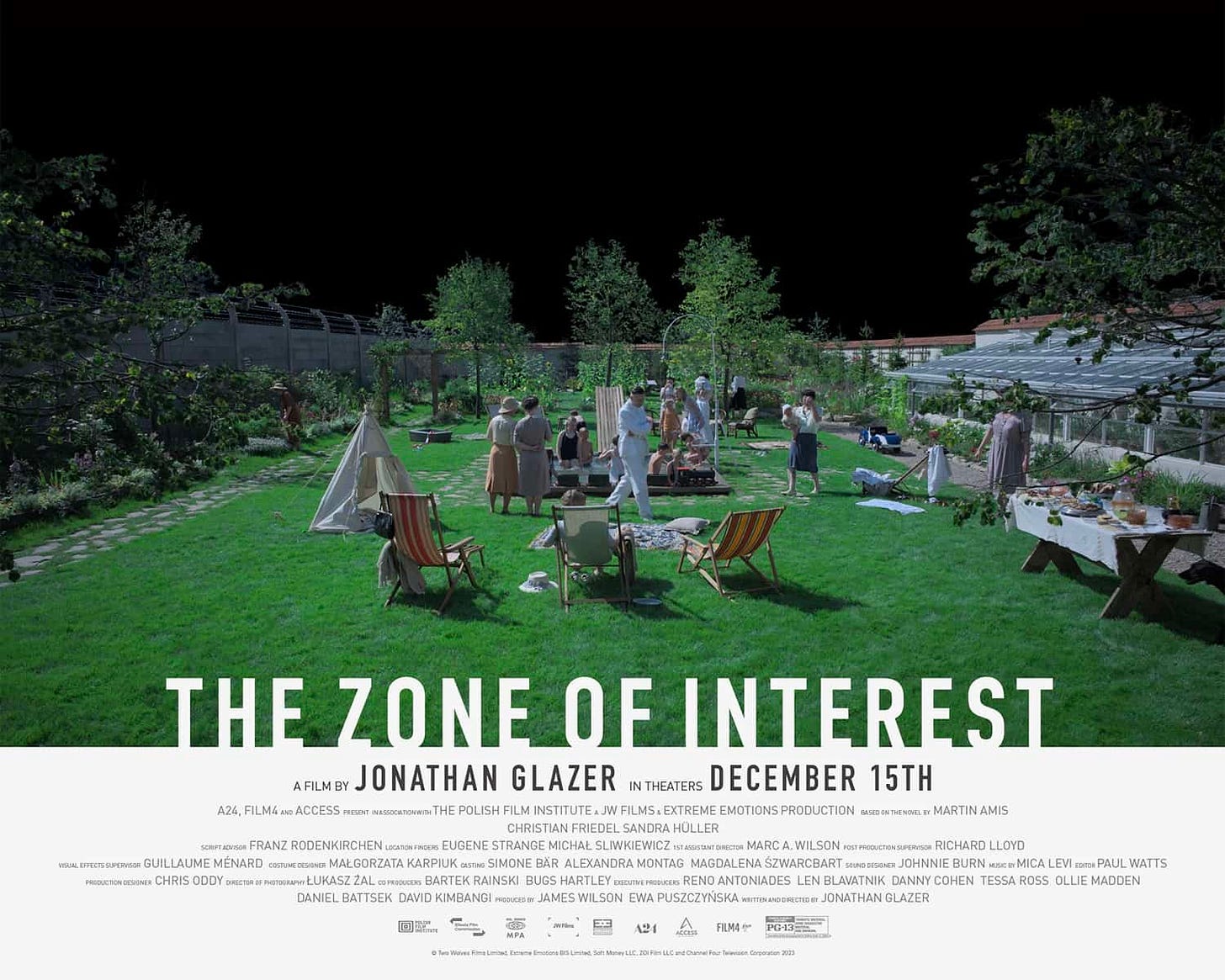
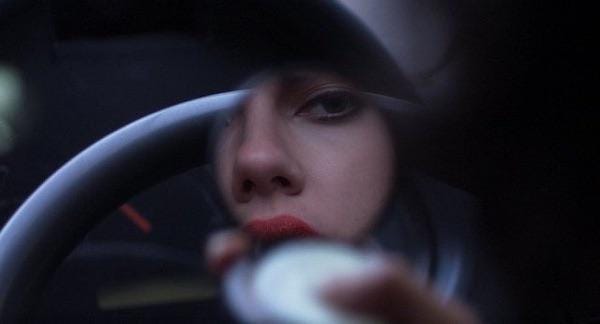
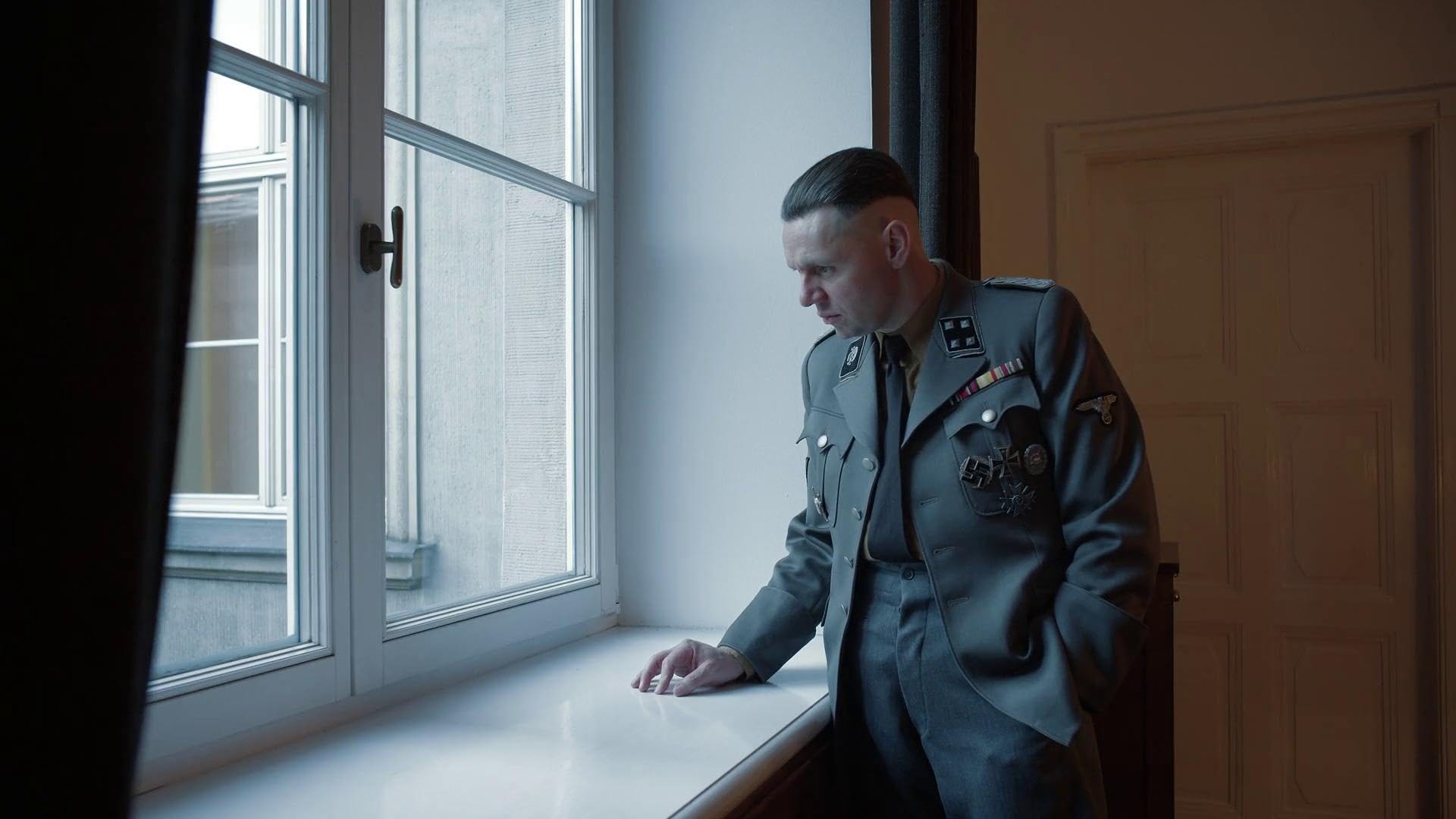
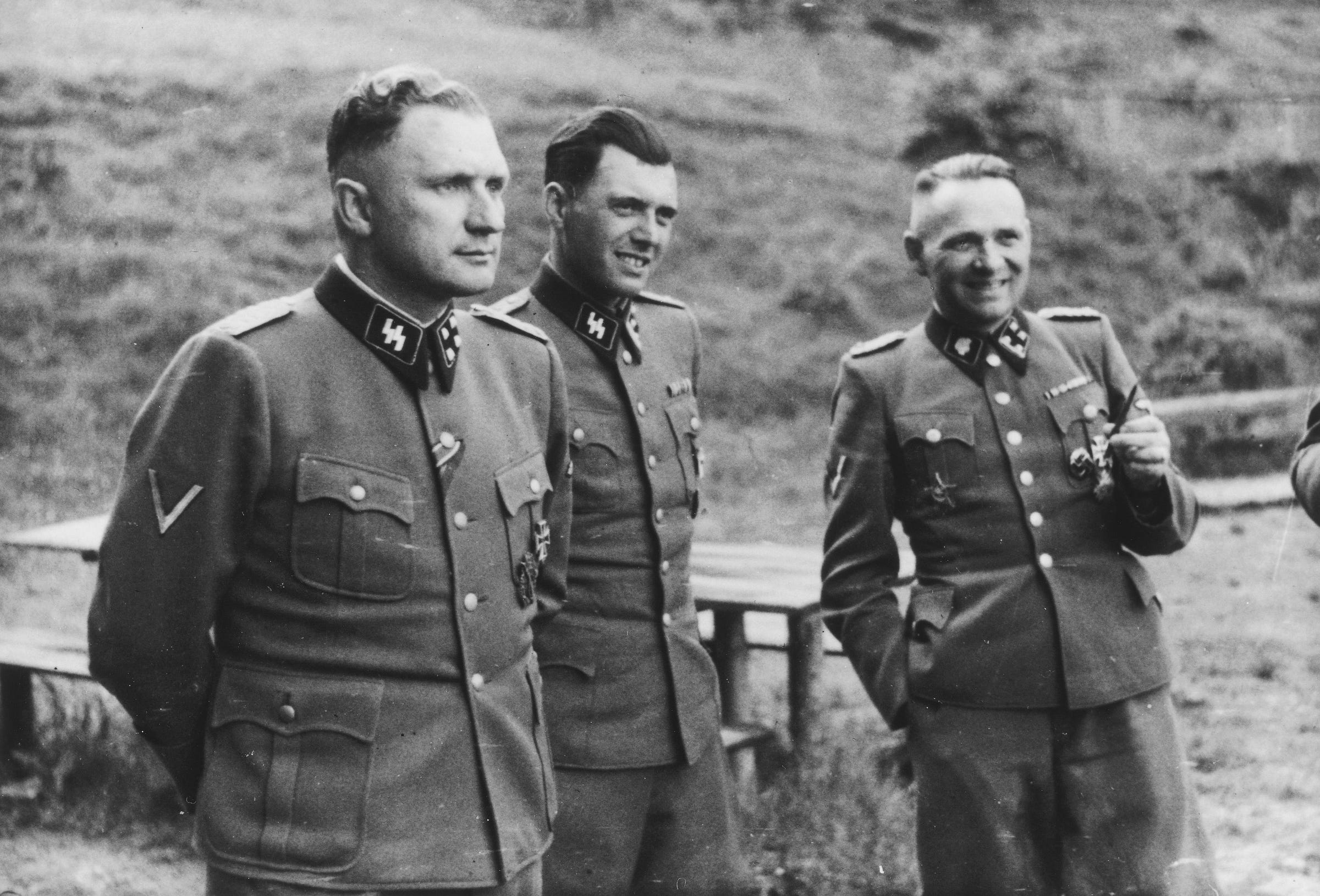
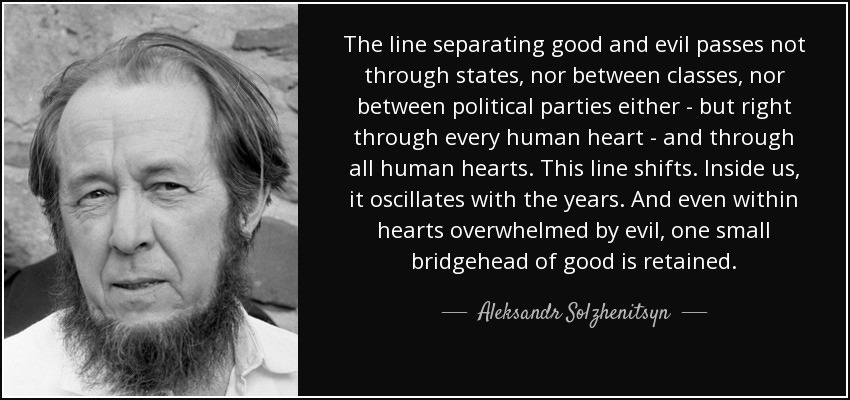




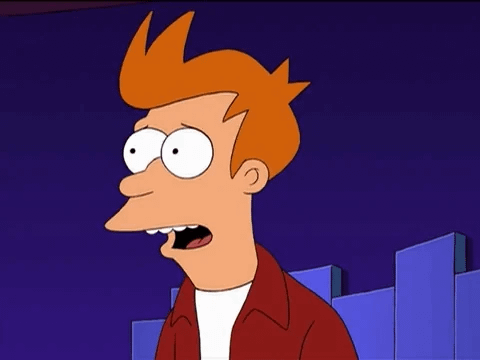
Good article! Have you ever seen Leni Riefenstahl’s masterpiece “Triumph of the Will”?